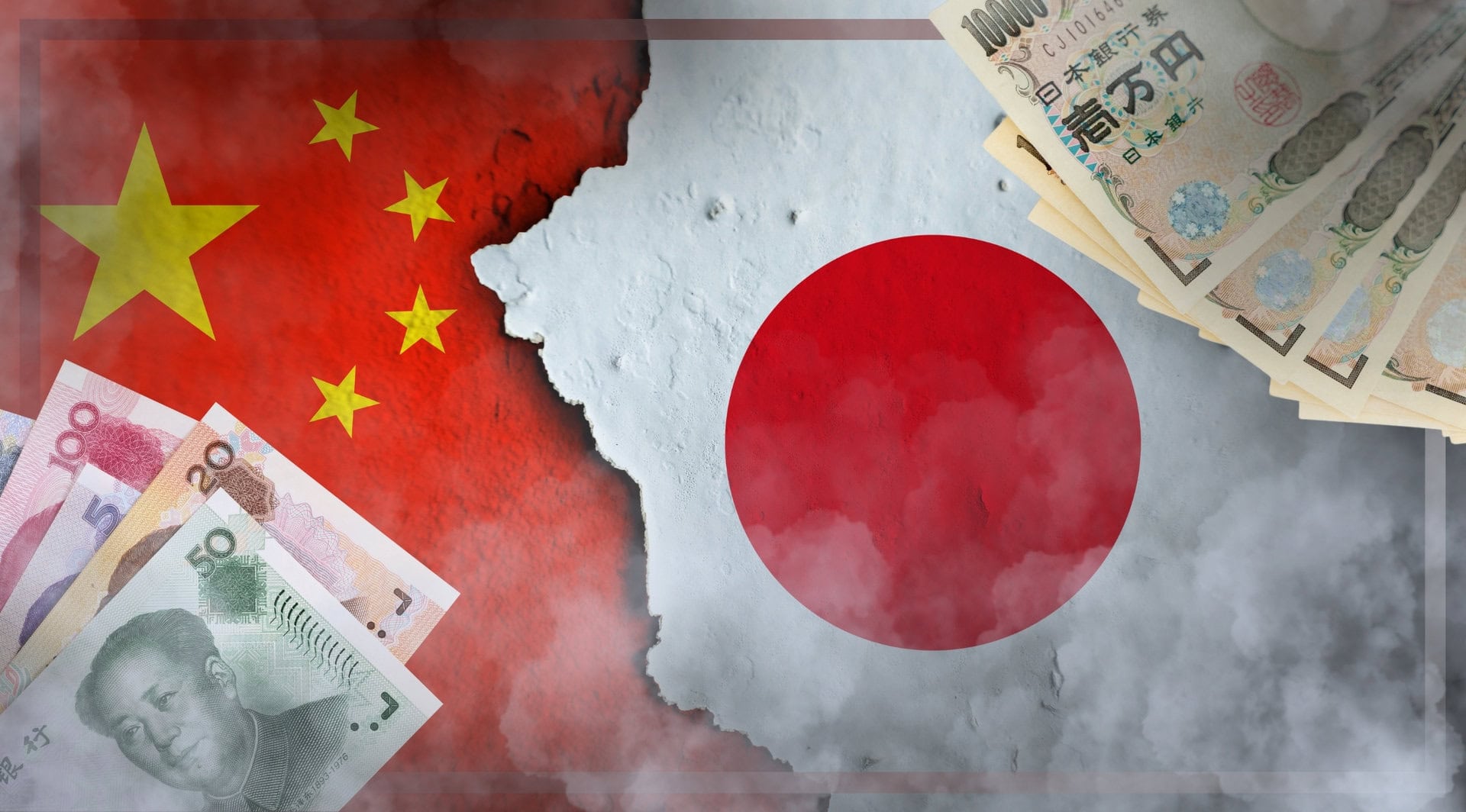The Japanese yen closed today’s Asian trading session at a three-decade low against the US dollar, with USD/JPY trading at around 150.
2023 has been a difficult year for the yen generally, even with the Bank of Japan’s heavy intervention in the foreign exchange markets. The central bank has sold billions of dollars in reserves in an attempt to prop up the national currency, which has been depreciating on account of the ultra-loose monetary policy which continues to be pursued in Japan.
The large discrepancies in interest rates between the US and Japan – with the former offering rates of up to 5.5% and Tokyo rates still negative at -0.1% – has further encouraged traders to hold the dollar and thereby achieve greater yields. There has been some hope that the Bank of Japan could normalise monetary policy and give the yen scope to strengthen, but this has not come to pass:
Policy normalisation by the #BOJ could allow the #japaneseyen to surge by as much as 60%. But only time will tell if policymakers in #Tokyo are prepared to drop decades of unconventional thinking and allow the yen to make sustained gains.https://t.co/yoiKGmIsHJ
— #DisruptionBanking (@DisruptionBank) June 20, 2023
The latest rout in USD/JPY markets can be explained by the dynamics in global debt markets. Yields on ten-year US government bonds, which are also considered to be one of the safest financial assets in the world, are currently at just under 5%. The yields on Japanese ten-year bonds, by contrast, are below 1%. This has encouraged traders to limit their exposure to the yen and increase their exposure to the dollar.
Why would traders accept opt for returns on yen-denominated assets under 1% when they could receive five times more on US bonds, which have the added bonus of being a safe asset in times of economic and political uncertainty? It is a no brainer – hence the sharp depreciation in the value of the yen.
Foreign investors significantly divested from Japanese bonds last week, as U.S. Treasury yields surged on expectations over a hawkish Federal Reserve following robust U.S. economic data.https://t.co/1nPSoabdIQ
— #DisruptionBanking (@DisruptionBank) October 26, 2023
Japan’s Finance Minister Shunichi Suzuki has suggested that he is closely watching the market moves, which has raised speculation that the Bank of Japan could intervene again to stabilise the yen. Officials are keen to avoid an overly weak yen because Japanese firms have shifted production overseas, with the country’s economy now heavily reliant on imports for goods such as fuel, raw materials, and machinery. A weaker yen would make these imports more expensive, drive up the cost of Japanese products, and therefore make Japanese firms less competitive globally.
For these reasons, it seems likely that the Bank of Japan will intervene again to try and stop the yen’s slide. But it remains to be seen for how long it can prop up a currency with such weak fundamentals.
Author: Harry Clynch















